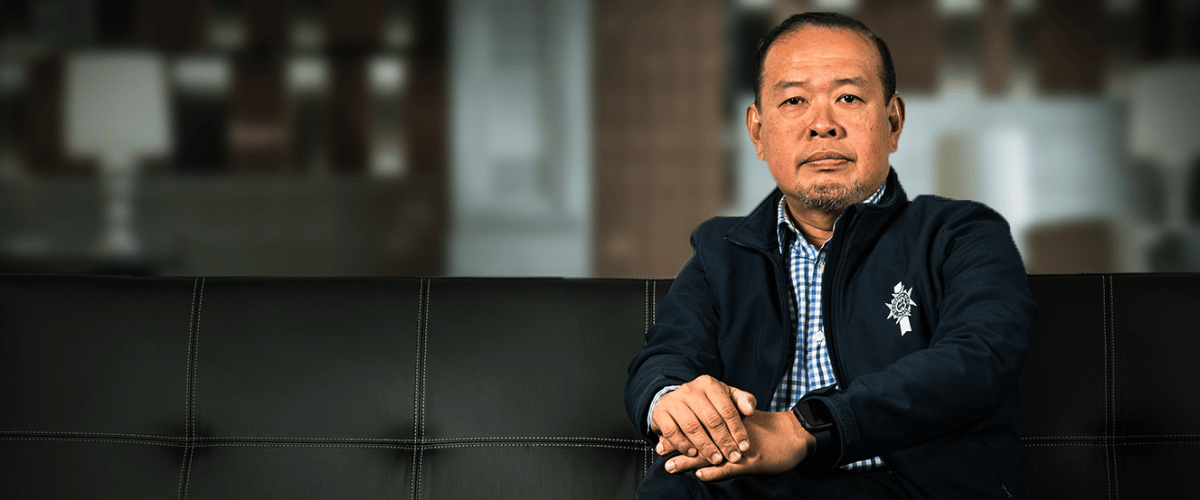-
Locations
Campuses in Europe & Middle EastCampuses in The AmericasCampuses in AsiaLe Cordon Bleu International
- Online Learning
Contact your local representative - Our Story
- Programmes
- Brochures
- News & Events
- Contact
- Find Course

The COVID dust has settled and hotels are finally booming again. Last month, news broke that hotels across South Australia are at capacity - and demand is only going to increase from here with more events bringing tourism back into the state.
New tourism data shows an all-time high in hotel forward bookings for Australian football season, with 80 per cent of hotel rooms already snapped up.
In mid-November last year, the announcement of LIV Golf Adelaide also prompted unforeseen demand for late April, which translated into bookings by early December.
Minister for Tourism Zoe Bettison says Adelaide hotels are "filling at a rate of knots" thanks to the state's blockbuster calendar of events.
"There is no doubt, eyes are on South Australia with new events like the Gather Round and LIV Golf, and it’s creating real wins for our tourism and hospitality sector,” Minister Bettison says.
“When ticket sales translate to tourists in our city and bookings in our hotels – that’s exactly why we go out hard to secure major events and invest in our calendar year-round."
Le Cordon Bleu Australia’s Academic Manager and Senior Lecturer, Dr Zainal Kassim, spent more than 10 years in the hotel business before turning his attention to the education sector, in particular lecturing Hotel Management students at the institution’s Adelaide and Melbourne arms.
He says while an industry boom is great for the sector, hotels are needing to up their game to compete in this fast-paced and overcrowded industry.
“The COVID era has been a huge period of disruption and innovation for the hotel industry,” Dr Kassim says.
“For a hotel operator to remain competitive and be considered as the preferred choice, the business needs to continue devising strategies to meet the changing behaviour of its guests.
“New technologies, an environmental focus, innovation and changes in the standard operating procedure due to the pandemic are shaping a new direction in the hotel industry.”
Le Cordon Bleu Australia recognises that the hospitality industry is one of the most competitive and fastest growing international industries in which rapid change is becoming an essential survival requirement.
He says we are now seeing more hotels adopt new technologies and green practices to keep up with the new demographic of travellers who are more climate-conscious, prefer low-carbon travel choices and engage more in eco-nature and sustainable hotels.
“These vacationers are also seeking to indulge themselves in organic and vegan food and are fast adopting the locavore philosophy,” Dr Kassim says.
“In support of green recovery from COVID-19, the hotel industry is making every possible effort to remain environmentally friendly by going paperless, utilising cloud-based property management systems, encouraging the use of refillable water bottles and embed organic resources and energy efficiency smart systems, just to name few initiatives.”
On the technological front, acting as a contingency tool due to the pandemic, travellers are turning to Online Travel Agencies (OTAs) for mobile convenience and a personalised experience.
To stay relevant, he says international hotel brands like Marriott and Hilton are developing their own applications in light of integrated booking and digital concierge platforms.
“In addition, Artificial Intelligence (AI) is fast changing how hotels serve their guests,” Dr Kassim says.
“Hotels are embracing new technologies varying from virtual check-in, digital keys using mobile phone, smart rooms, intelligent chatbots to smart rooms and booking applications that can customise a guest’s preferences.” Above: Le Cordon Bleu Australia Academic Manager and Senior Lecturer Dr Zainal Kassim. Photo: Nick Teoh.
Above: Le Cordon Bleu Australia Academic Manager and Senior Lecturer Dr Zainal Kassim. Photo: Nick Teoh.
His advice to hoteliers trying to stand out from the crowd is simple – invest more in engaging with local communities rather than purely looking at ways to entice international travellers.
“We are seeing more and more locals preferring to explore their own backyard since the pandemic,” he says.
“It’s important to capture local vacationers as another key target market and this can be done by offering things like package deals that include entrance tickets…new travellers are seeking novelty ideas to entice their stay with a property."
Part of Dr Kassim’s teaching at Le Cordon Bleu Australia includes the assessment of hotel trends, such as the advancement of technology and cost-saving initiatives which hotels are needing to adopt in their operations to thrive.
“Le Cordon Bleu Australia recognises that the hospitality industry is one of the most competitive and fastest growing international industries in which rapid change is becoming an essential survival requirement,” he says.
“We provide students with the fundamental processes and structures for initiating and planning projects in the hospitality industry in an interactive and engaging way, assisting them to become hospitality leaders with a sound knowledge of what it takes to succeed.”
Looking for a career in Hospitality Management? Explore our programs today!
Copyright © 2025 Le Cordon Bleu International B.V. All Rights Reserved.